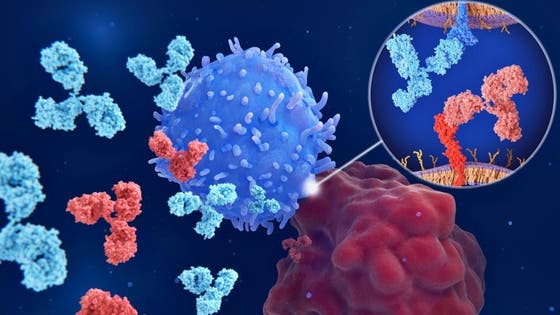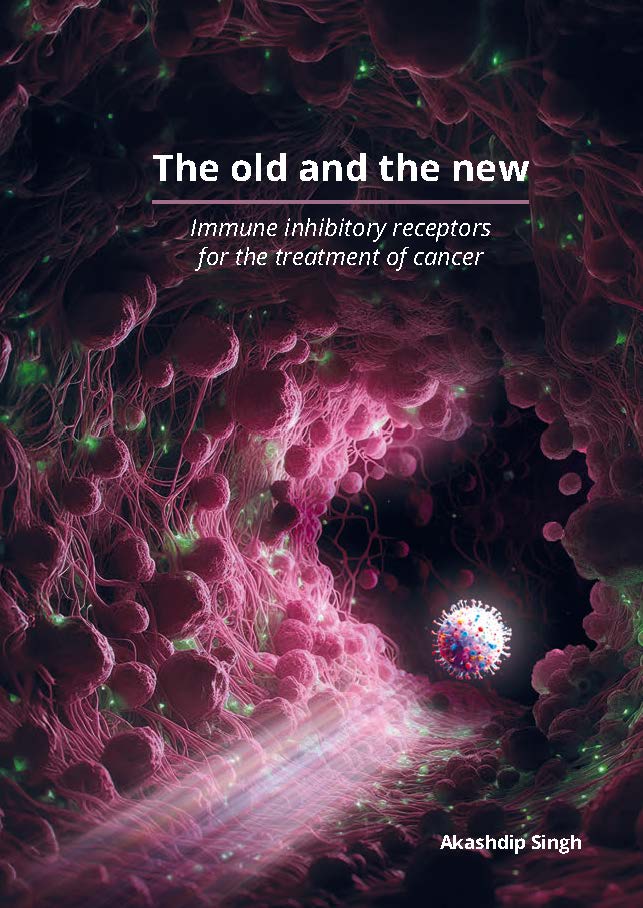Jan 9: Unraveling the role of immune inhibitory receptors for the treatment of cancer
Jan 9: Unraveling the role of immune inhibitory receptors for the treatment of cancer

The work in the PhD thesis of Akashdip Singh (UMC Utrecht) contributes to a better understanding of immune inhibitory receptors for the treatment of cancer and outlines key considerations for the development of therapies targeting LAIR-1 and novel inhibitory receptors as cancer immunotherapy.

Despite great effects melanoma and lung cancer, the efficacy of current immune checkpoint inhibitory therapies is insufficient for most cancer patients. These therapies are limited by a lack of response, the development of resistance and the occurence of adverse events such as inflammation and auto-immunity. Many new immune inhibitory receptors are currently being explored to overcome these limitations. Researchers at UMC Utrecht and others have previously shown the potential of Leukocyte Associated Immunoglobulin Like Receptor 1 (LAIR-1). Discovered 25 years ago, LAIR-1 is an immune inhibitory collagen receptor that recognizes collagens, including collagens associated with tumors. Since collagen expression and structure in the tumor microenvironment are associated with tumor development and therapy response, LAIR-1 is a promising target for cancer immunotherapy. Akashdip Singh (Center for Translational Immunology, UMC Utrecht) further unraveled the the role of immune inhibitory receptors in his PhD research.
Main findings
- In multiple mouse models, absence of LAIR-1 signalling alone was not sufficient to control tumor growth. However, combined targeting of LAIR-1 and PD-L1 resulted in increased tumor control.
- Collagen fragments produced in cancer can mediate T cell suppression through LAIR-1. Blocking the interaction of LAIR-1 with collagen fragments might be an added benefit of LAIR-1-directed immunotherapy.
- LAIR-1 plays a key role in the regulation of T cell migration and targeting of LAIR-1 could increase T cell infiltration in tumors with high collagen content.
- Expression of scavenger receptor MARCO on tumor associated macrophages suppresses the function LAIR-1. Specific blockade of this interaction may have potential in cancer therapy.
- Singh and co-workers designed a novel bioinformatics pipeline, integrating machine learning-guided structural predictions and sequence-based likelihood models that identified 51 known and 390 novel inhibitory receptors which will support future drug target selection.
The studies described in the PhD thesis of Akashdip Singh further contribute to our understanding of how LAIR-1 and collagen are involved in modulating the immune response against cancer. Furthermore, the researchers moved beyond currently described inhibitory receptors and identified a novel set of putative inhibitory receptors that may have potential as targets for cancer immunotherapy.
PhD defence

Akashdip Singh (1995, Amsterdam) defended his PhD thesis on January 9, 2024 at Utrecht University. The title of his thesis was “The Old and the New – Immune Inhibitory Receptors for the Treatment of Cancer.” Supervisor was prof. Linde Meyaard PhD (Center for Translational Immunology, UMC Utrecht). Co-supervisor was Ines Pascoal Martins Ramos PhD (Center for Translational Immunology, UMC Utrecht).

